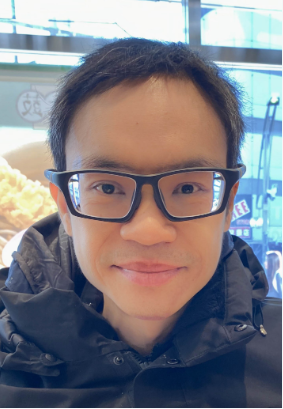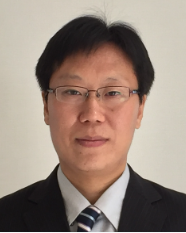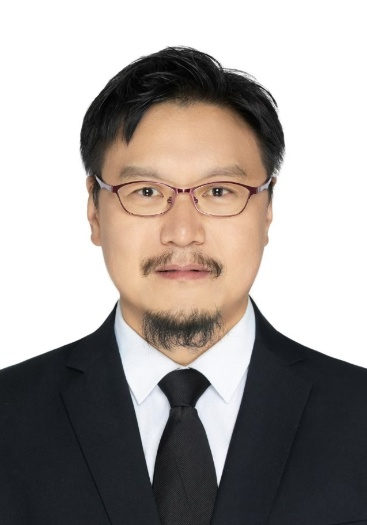
Prof. Dusit (Tao) Niyato IEEE Fellow, IET Fellow, Nanyang Technological University, Singapore Bio: Dusit Niyato (M'09-SM'15-F'17) is a professor in the College of Computing and Data Science, at Nanyang Technological University, Singapore. He received B.Eng. from King Mongkuts Institute of Technology Ladkrabang (KMITL), Thailand and Ph.D. in Electrical and Computer Engineering from the University of Manitoba, Canada. His research interests are in the areas of mobile generative AI, edge intelligence, quantum computing and networking, and incentive mechanism design. Title: Toward Edge General Intelligence with Agentic AI and Agentification Abstract: The rapid expansion of sixth-generation (6G) wireless networks and the Internet of Things (IoT) has catalyzed the evolution from centralized cloud intelligence towards decentralized edge general intelligence. However, traditional edge intelligence methods, characterized by static models and limited cognitive autonomy, fail to address the dynamic, heterogeneous, and resource-constrained scenarios inherent to emerging edge networks. Agentic artificial intelligence (Agentic AI) emerges as a transformative solution, enabling edge systems to autonomously perceive multimodal environments, reason contextually, and adapt proactively through continuous perception-reasoning-action loops. In this context, the agentification of edge intelligence serves as a key paradigm shift, where distributed entities evolve into autonomous agents capable of collaboration and continual adaptation. This paper presents a comprehensive survey dedicated to Agentic AI and agentification frameworks tailored explicitly for edge general intelligence. First, we systematically introduce foundational concepts and clarify distinctions from traditional edge intelligence paradigms. Second, we analyze important enabling technologies, including compact model compression, energy-aware computing strategies, robust connectivity frameworks, and advanced knowledge representation and reasoning mechanisms. Third, we provide representative case studies demonstrating Agentic AI's capabilities in low-altitude economy networks and intent-driven networking. Furthermore, we identify current research challenges. |
|
Prof. Celimuge Wu University of Electro-Communications, Tokyo, Japan Bio: Celimuge Wu received his PhD degree from The University of Electro-Communications, Japan. He is currently a professor and the director of Meta-Networking Research Center, The University of Electro-Communications. His research interests include Semantic Communications, Vehicular Networks, Edge Computing, IoT, and AI for Wireless Networking and Computing. He serves as an associate editor of IEEE Transactions on Cognitive Communications and Networking, IEEE Transactions on Network Science and Engineering, and IEEE Transactions on Green Communications and Networking. He is Vice Chair (Asia Pacific) of IEEE Technical Committee on Big Data (TCBD). He is a recipient of 2021 IEEE Communications Society Outstanding Paper Award, 2021 IEEE Internet of Things Journal Best Paper Award, IEEE Computer Society 2020 Best Paper Award and IEEE Computer Society 2019 Best Paper Award Runner-Up. He is an IEEE Vehicular Technology Society Distinguished Lecturer. He is a Foreign Fellow of The Engineering Academy of Japan (EAJ), and a Fellow of Asia-Pacific Artificial Intelligence Association (AAIA). Title: Low Latency Semantic Communication System for Remote Driving Abstract: The explosive growth of multimedia data, the continuous surge in the number of connected devices, and the increasing demand for real-time intelligent applications are posing unprecedented challenges to current communication infrastructures. Traditional communication systems that transmit raw or compressed data often suffer from excessive latency and bandwidth inefficiency, which can be critical in delay-sensitive applications such as remote driving. To overcome these limitations, semantic communications have recently emerged as a paradigm shift that focuses on transmitting the meaning of data rather than the raw data itself. This talk introduces a novel low-latency video semantic communication framework tailored for remote driving scenarios. In contrast to conventional video transmission methods, the proposed system employs an asymmetric encoder–decoder architecture that transmits only a minimal number of bits by leveraging semantic feature extraction, while reconstructing high-quality video at the receiver through generative AI techniques. To validate its effectiveness, we design and implement a prototype system that seamlessly integrates semantic feature extraction, efficient transmission, and deep learning–based video reconstruction at the receiver side. |
|
Prof. Songlin Sun Beijing University of Posts and Telecommunications, China Bio: Prof. Songlin Sun graduated from Beijing University of Posts and Telecommunications in 2003 and is currently the director of the Department of Electronic Information Engineering, School of Information and Communication Engineering, Beijing University of Posts and Telecommunications. Director of the Chinese Command and Control Society. He has won the China Industry-University-Research Innovation Award for two consecutive years, the China Film and Television Technology Society Award, and the first prize of Qingdao Science and Technology Progress Award. His current research interests are wireless communication, video encoding and transmission. Title: The new logic of cognition in the multimedia era Abstract: This lecture focuses on the reshaping impact of multimedia technology on society and cognition. Through daily cases, it is pointed out that the media has evolved from an "information carrier" to a "cognitive companion", affecting the entire chain of human cognition. After summarizing the latest technological advances such as multimodal fusion and large model technology, it reveals how the technology adapts to the human sensory channel capacity and embodied cognition. After that, he pointed out the different consequences of the development of media technology from the social dimension: decentralization of communication power; Virtual reality exacerbates the intergenerational cognitive gap; algorithms induce cognitive polarization; Then, it is pointed out that multimedia optimizes memory coding, but some current technologies are prone to confidence bias. Finally, the question of how the technological progress of the media breaks the social cognition is discussed. |
|
Prof. Jingjing Wang Beihang University, China Bio: Jingjing Wang is a Professor and Ph.D. supervisor at Beihang University. He focuses on research in low-altitude intelligent networks and related key technologies. He has published over 200 research articles in IEEE journals and conferences, including 21 ESI Highly Cited papers and 4 ESI Hot papers, gaining widespread recognition from the research community. He was a recipient of the Best Paper Award of IEEE ICC, IEEE WCSP and IEEE IWCMC. Title: Bridging Individual Cognition and Collective Intelligence for Next-Generation Aerial Autonomy Abstract: Achieving robust autonomy in unstructured environments remains a core challenge, requiring breakthroughs that span from cognitive perception to collective decision-making. We present a comprehensive methodology that empowers UAVs with efficient spatial discovery capabilities via anisotropic Gaussian-based active perception, while simultaneously embedding millisecond-level agile reflexes through an end-to-end generative control model. To scale this intelligence, we introduce an implicit collaboration mechanism using spatiotemporal attention and reinforcement learning, enabling agents to achieve zero-collision swarm coordination without relying on explicit communication. These advancements unify individual cognition and swarm intelligence, laying the foundation for next-generation aerial autonomy. |
|



